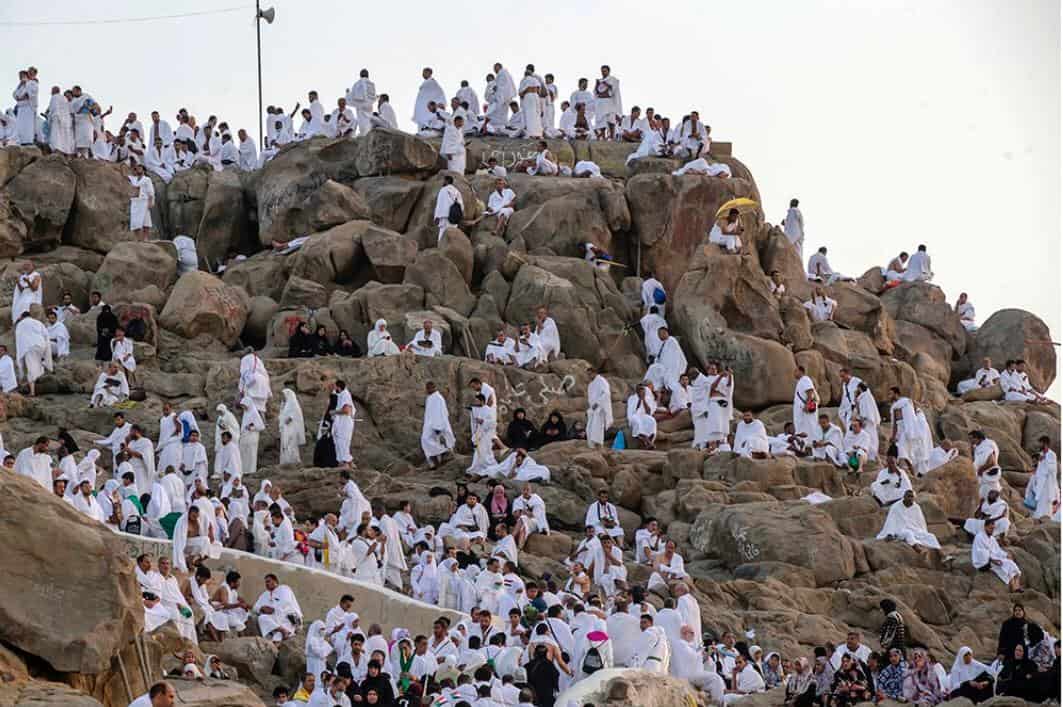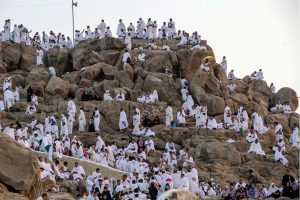Hajj Reflections 7 – The Heart of Hajj

The Essence of the Day of Arafah

Increasing Khushu and attaining tranquility
‘And stand up in your prayer with submissiveness.’ (2:238)
Successful are the believers. Those who are humble in their prayers. (23:1-2)
Remaining focus during extended worship
Different forms of worship (ibadah) vary in length – for instance, fasting starts at Fajr and ends at sunset, whereas Hajj is the longest amongst all our ibadah and is unrelated to sunrise and sunset. How do you maintain focus when the ibadah is unbroken for so long? This is where wearing ihram and reciting the talbiyah form part of your worship of Allah Almighty during Hajj. White clothes are a reflection of purity of intention, communication and connection with Allah Almighty and purity of the heart, tongue and ibadah in seeking Allah’s pleasure. You are saying: ‘I don’t want to go back with same heart, spirit and inspiration.’ You don’t want to return renewed.
Forgiveness on the Day of Arafah
A’isha (may Allah be pleased with her) reported Allah’s Messenger peace be on him) said: There is no day when God sets free more servants from Hell than the Day of Arafah. He draws near, then praises them to the angels, saying, ‘What do these want?’ (Muslim)
‘Look at them they have come from different places, with different hopes and wishes, but all dishevelled and I have forgiven all of them.’ (Bayhaqi)
‘I’ll forgive them. They came all the way to seek My Forgiveness, so be my witness that I have forgiven them.’ (Bayhaqi)
Seek forgiveness by performing istighfar.‘Whoever controlled their tongue, hearing and sight he will be forgiven.’ (Musnad Ahmad)
Conditions of forgiveness
The pilgrims performing Hajj and Umrah are a delegation to Allah. If they call upon Him, He will answer them; and if they ask for His forgiveness, He will forgive them. (Ibn Majah)
The Prophet (peace be on him) used a special supplication on Yawm Arafah: ‘Laa ilaaha illallaahu wahdahu laa shareeka lahu lahul mulku wa lahul hamdu wa Huwa ‘alaa kulli shay’in Qadeer’.
None has the right to be worshipped except Allah, alone, without partner. To Him belongs sovereignty and all praise and He is over all things omnipotent.
Every single second on this day is for us to utilise and benefit from it.
Physical and spiritual journey to Allah
Hit the delete button and start fresh
Recommended Posts

How Allah strengthens the hearts of believers
April 19, 2024

Don’t be a Ramadani person – Be a Rabbani person.
April 10, 2024

